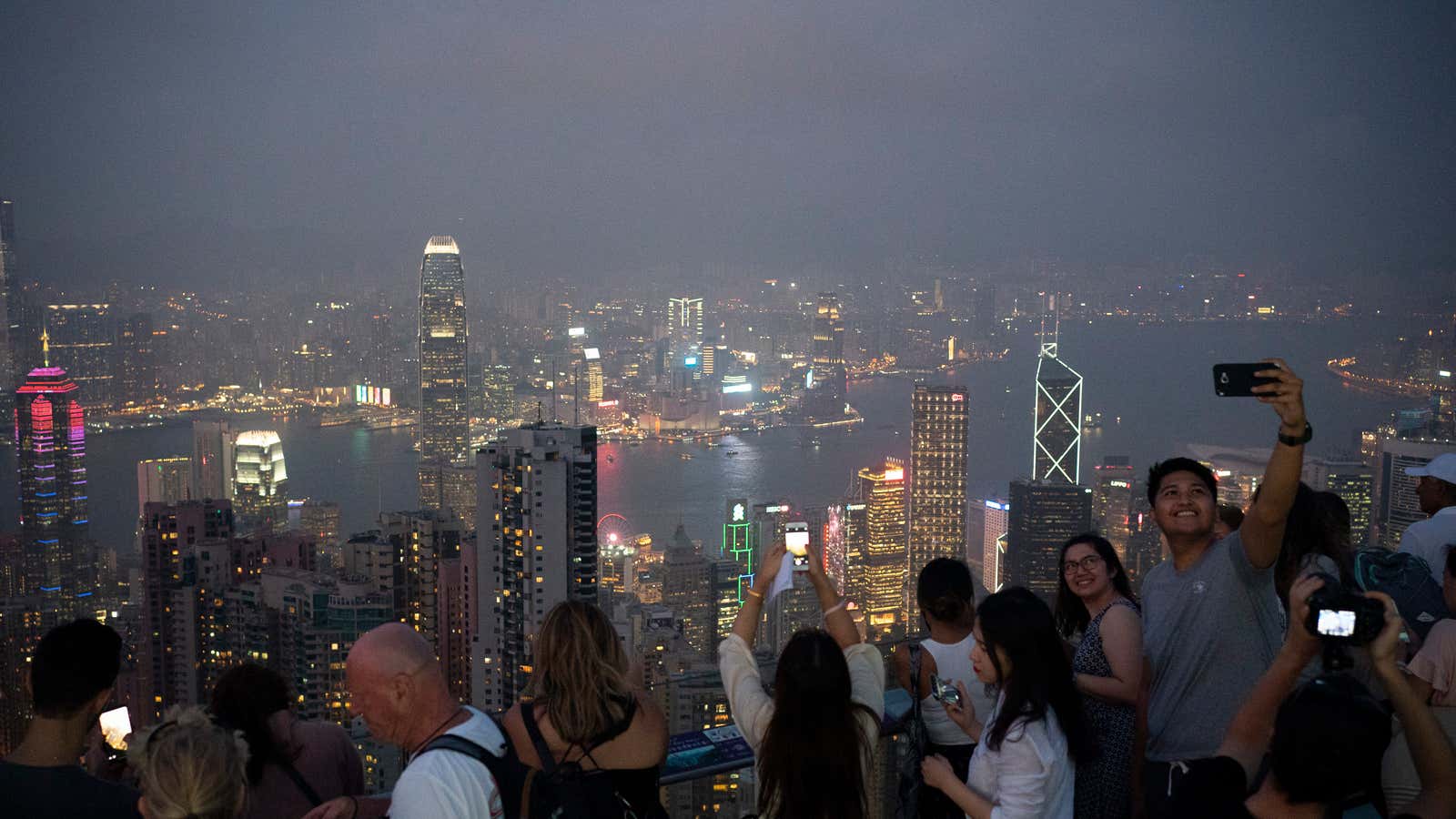Chinese leisure travelers are shying away from Hong Kong.
The ongoing pro-democracy protests put at risk the hotels, airlines, and restaurants that rely on mainland tourism to stay afloat.
The decline of mainland travelers to Hong Kong was clear during travel around China’s National Day on Oct. 1. Known as the “golden week”, about 7 million mainland residents traveled abroad during the seven-day holiday last year.
Ctrip, the largest travel services company in China, estimated (link in Chinese) Hong Kong was the third-most popular overseas destination, after Japan and Thailand, based on aggregated data from immigration services, online bookings, and travel agencies. A newly-opened high-speed rail linking mainland China and Hong Kong also boosted figures during the holiday.
This year, Hong Kong wasn’t even in the top ten of Ctrip’s report.
Hong Kong’s Travel Industry Council executive director Alice Chan Cheung Lok-yee anticipated a decline up to 86% in tour groups from mainland China. On average, 110 tour groups entered Hong Kong each day during the 2018 golden-week holiday.
The decline is a huge reversal. Hong Kong enjoyed a tourism boom in the first half of the year. Every month saw higher arrivals compared to the year before. Visitors to Hong Kong, about 80% of whom came from mainland China, declined 39% in August 2019 compared to one year ago.
The protests became a mass movement in early June.
Taiwan’s tourism industry was a casualty to Hong Kong’s political unrest, too. Last year, Taiwan was among the top 10 overseas destinations during golden week. In July, China banned its citizens from traveling to Taiwan as individual tourists. Travelers are now required to book an organized group tour. The Chinese government didn’t give a reason for the ban. Taiwan’s Travel Agent Association believes it’s an economic sanction by China to put pressure on the pro-independence Taiwanese government ahead of its presidential election in January 2020. The ban is estimated to cost the island $900 million by then.
On Oct. 23, the Hong Kong Tourism Board announced a program to boost tourism. From November to March next year, travel agents will receive HK$120 ($15) for each inbound traveler staying overnight, and about HK$100 for each outbound tourist, for up to 500 tourists per agent.
